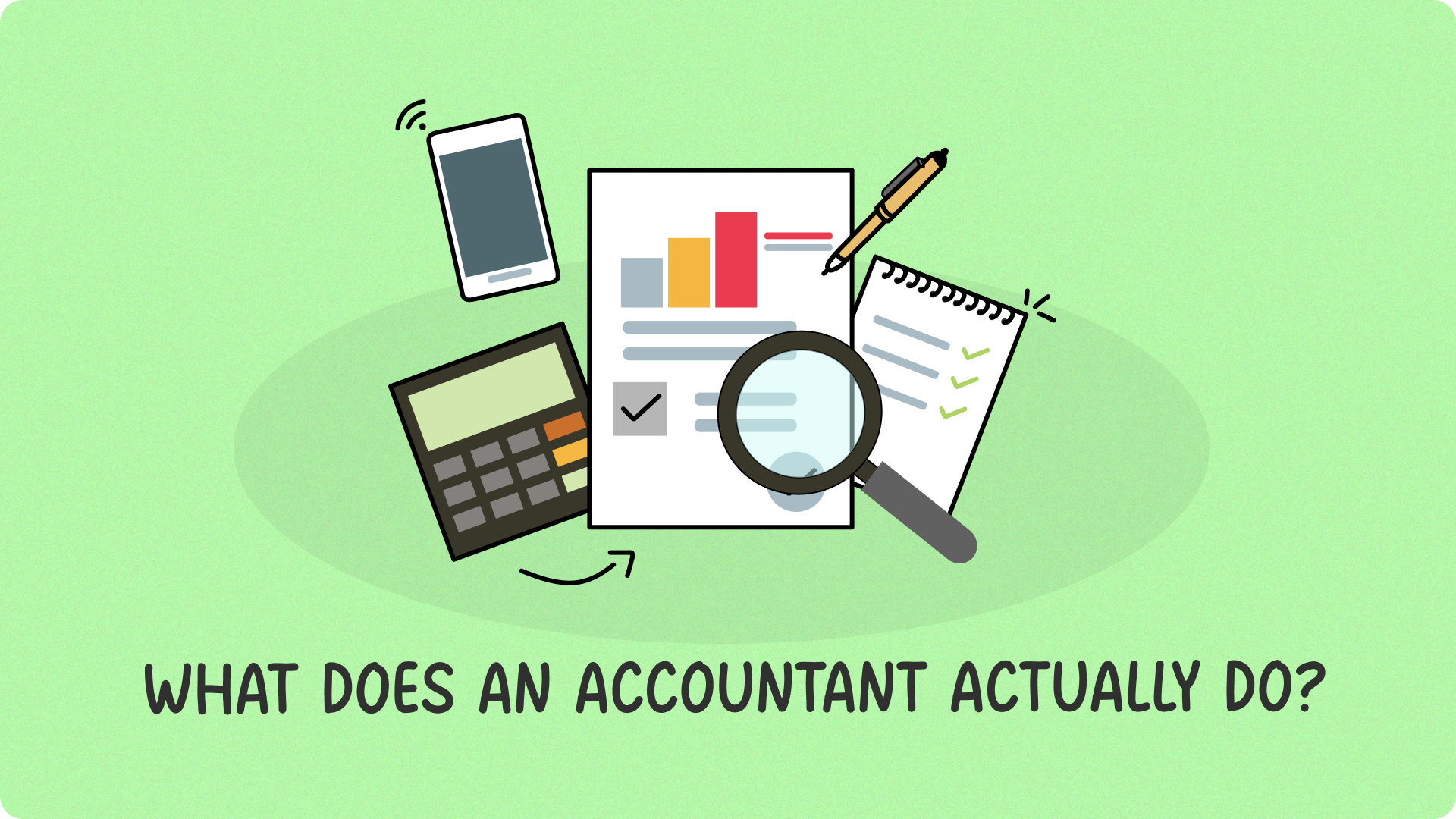For many small business owners and freelancers, the word “accountant” might conjure images of stern figures buried under piles of receipts, or perhaps someone who just “does taxes.” While tax preparation is certainly a big part of what they do, the reality is that the role of an accountant is far more diverse, dynamic, and crucial to the health of any business, big or small.
So, what exactly does an accountant do? Let’s break down their essential functions, explaining simply how they help businesses and individuals navigate the world of finance.
Think of an accountant as your financial navigator, helping you understand where your money is, where it’s going, and how to get it where you want it to be. Their responsibilities typically fall into several key areas:
- Bookkeeping & Record Keeping
- Financial Reporting & Analysis
- Compliance & Planning for Tax Season
- Advisory Services
1. Bookkeeping & Record Keeping
At the foundation of all accounting is accurate record-keeping. While an accountant might not always handle the day-to-day data entry (that’s often the bookkeeper’s role), they oversee this process to ensure all financial transactions are correctly recorded. This includes:
- Categorizing Transactions: Making sure every expense and income item is placed in the right account (e.g., office supplies, rent, sales revenue).
- Reconciling Accounts: Matching bank and credit card statements with the business’s records to ensure accuracy and catch any discrepancies.
- Maintaining Ledgers: Keeping detailed records of all financial activities, which are the backbone for generating financial statements.
Without meticulous record-keeping, it’s impossible to know the true financial picture of a business. In fact, while 72% of business owners handle their own accounting tasks—from basic bookkeeping to filing taxes—a striking 60% admit they don’t feel knowledgeable about finances and accounting.
2. Financial Reporting & Analysis
Once the data is accurately recorded, an accountant transforms raw numbers into meaningful insights. This involves preparing and analyzing key financial statements:
- Income Statement (Profit & Loss): Shows your revenue, costs, and ultimately, your profit or loss over a specific period. An accountant helps you understand why your profit went up or down.
- Balance Sheet: Provides a snapshot of your business’s financial health at a specific point in time, detailing your assets (what you own), liabilities (what you owe), and owner’s equity.
- Cash Flow Statement: Tracks the actual cash coming into and going out of your business, helping you understand your liquidity and solvency.
Beyond just preparing these, a good accountant will analyze them to spot trends, identify areas for improvement (like cutting unnecessary expenses), and help you make informed business decisions. For instance, they might point out that while you’re profitable on paper, your cash flow is tight, prompting a review of payment terms. This insight is critical, as poor cash flow management is a leading cause of small business failure. Indeed, 60% of small business owners have grappled with cash flow issues in the past year alone.
3. Compliance & Planning for Tax Season
Yes, taxes are a major component, but it’s more than just filling out forms. Accountants are experts in tax law and help ensure you comply with all federal, state, and local regulations, avoiding penalties. This includes:
- Tax Preparation & Filing: Preparing and submitting annual income tax returns (e.g., Form 1040 Schedule C for freelancers, Form 1120 for corporations).
- Estimated Tax Calculations: Helping self-employed individuals and small businesses calculate and pay their quarterly estimated taxes to avoid underpayment penalties.
- Tax Planning: This is where an accountant truly shines. They proactively advise on strategies to legally minimize your tax liability, maximize deductions, and optimize your business structure for tax efficiency. This could involve advising on retirement contributions, equipment purchases, or home office deductions. In many cases, the tax savings achieved by using a good accountant can far outweigh the cost of their services.
Handling Audits: Should the IRS come knocking, an accountant can represent you and expertly guide you through the audit process. While the overall audit rate for individual taxpayers is low, at about 0.44% in 2023, corporate returns face a higher audit rate of 0.74%.
4. Advisory Services
Many accountants go beyond historical reporting and become trusted business advisors. They use financial data to help you make forward-looking strategic decisions, such as:
Budgeting & Forecasting: Helping you create realistic budgets and financial forecasts to plan for future growth, expenses, and cash needs.
Business Planning: Assisting with financial projections for loan applications, investor pitches, or expanding your operations.
Pricing Strategies: Analyzing your costs to help you set profitable prices for your products or services.
Software Integration & Optimization: Recommending and helping implement accounting software solutions that streamline your financial processes.
Risk Management: Identifying potential financial risks and advising on ways to mitigate them.
Why Do Freelancers and Small Businesses Need Accountants?
While you might start by handling your own finances, as your business grows, the complexity increases. An accountant becomes invaluable for:
- Saving Time: Freeing you from tedious financial tasks so you can focus on your core business activities. Small business owners can spend 10-25 hours per month on bookkeeping alone, time better spent generating revenue.
- Saving Money: Identifying legitimate deductions, preventing costly errors, and offering tax-saving strategies. An accountant helps avoid penalties for inaccuracies, which can range from 0% to 100% of the unpaid tax depending on the error’s nature.
- Ensuring Compliance: Keeping you out of hot water with the IRS and other regulatory bodies.
- Providing Clarity & Confidence: Giving you a clear picture of your financial health and the confidence to make sound business decisions. Studies consistently show that effective financial management practices are critical for enhancing business survival, growth, and performance.
- Growth Support: Offering insights and strategies to help your business scale sustainably.
In essence, an accountant is not just a number cruncher; they are a vital partner who provides clarity, ensures compliance, and offers strategic insights to help your business thrive.
Ready to streamline your financial operations or need expert guidance? Whether you’re a budding freelancer or a growing small business, understanding your numbers is key to success. Schedule a call with us today to learn how our solutions can empower your financial management.







